The Truth About Cruelty-Free Makeup Labels: What Consumers Need to Know
flareAI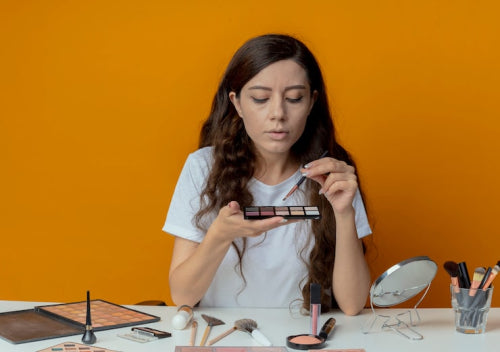
Quick Listen:
Imagine stepping into a bustling beauty aisle on a sunny Saturday, your gaze drawn to a vibrant lipstick tube emblazoned with the words "cruelty-free." It evokes a rush of satisfaction finally, a choice that spares bunnies and beagles from lab ordeals. Yet, as you turn the package over in your hand, doubt flickers: Is this promise ironclad, or just clever packaging? In today's booming ethical beauty landscape, where compassion meets commerce, decoding these labels demands more than a glance. The reality is layered, influenced by lax regulations and evolving markets, but armed with clarity, you can wield your purchasing power effectively. Let's unpack the nuances, drawing on solid industry insights to empower your next beauty buy.
Many women feel trapped by makeup that hides flaws but risks irritation and hidden toxins. This daily choice weighs heavily, dimming confidence over time. Liht Organics invites you to embrace beauty differently. With up to 90% USDA-certified organic ingredients, our vegan, cruelty-free products deliver vibrant color and gentle care, letting you glow with confidence, knowing your skin is nurtured, not compromised. Shop Now!
The Surge of Ethical Beauty: A Market in Motion
The cosmetics world is no longer just about flawless finishes; it's a battleground for values, where sustainability and animal welfare reign supreme. Younger shoppers, in particular, are reshaping the industry, insisting on products that mirror their ethos of kindness and environmental stewardship. This shift isn't fleeting it's reshaping billion-dollar empires. Consider the global cruelty-free cosmetics sector, which clocked in at $14.84 billion back in 2023 and stands poised to swell to $23.54 billion by 2030. That's a compound annual growth rate of 6.8% from 2024 onward, propelled by heightened awareness of ethical sourcing, tougher anti-testing laws, and breakthroughs in non-animal evaluation techniques.
Europe is at the forefront, snagging more than 37% of worldwide revenue that year, a testament to stringent EU bans on cosmetic animal trials. Across the Atlantic, the U.S. scene is heating up with a projected 7.0% yearly climb through 2030. Skincare leads the pack, capturing 44.2% of revenues in 2023, as discerning buyers seek serums and creams that soothe skin without compromising conscience. Retail channels tell a similar story: hypermarkets and supermarkets drove 33.7% of sales, making ethical options as accessible as your weekly grocery run.
At the heart of this evolution are innovators like Liht Organics, whose vegan and organic lines embody the cruelty-free ideal from farm to face. Yet, for all the momentum, the "cruelty-free" badge remains a wildcard. As animal welfare groups emphasize, these declarations lack federal oversight in the States, allowing firms to interpret them loosely. A company could tout the label while its overseas partners still rely on animal-derived tests, creating a chasm between marketing spin and manufacturing truth. This regulatory void, highlighted by organizations pushing for bans on newly tested cosmetics sales, underscores a critical truth: ethical intent demands vigilant verification.
Unveiling the Label: Core Definitions and Hidden Pitfalls
To grasp "cruelty-free" at its essence, start here: it denotes makeup crafted without inflicting harm on animals at any stage, from ingredient vetting to final formulation. This principle, central to the cruelty-free makeup arena, reached $6.35 billion in 2024 amid a wave of interest in eco-friendly and plant-based components. But here's the rub without uniform rules, interpretations vary wildly. One brand's "no direct testing" might overlook supplier practices or international mandates, turning shopper trust into a gamble.
Take global expansion: entering markets like China often necessitates animal checks for regulatory clearance, clashing with domestic no-test pledges. This tension persists, not from necessity but from bureaucratic hurdles, as industry watchers observe. Animal testing lingers in cosmetics not because science demands it, but because laws in key regions lag behind public sentiment. Advocates, scientists, and buyers unite in calling for reform, yet the cruelty-free niche, though expanding, occupies just a sliver of the vast beauty pie.
Enter certifications as your compass. The Leaping Bunny program sets a gold standard, mandating an unyielding cutoff date post which no entity in the supply chain from raw material producers to packagers engages in animal trials worldwide. This extends to finished goods, with mandatory yearly reviews of all components and third-party audits to safeguard adherence. Such rigor ensures holistic compliance, far beyond mere lip service. Liht Organics exemplifies this commitment, weaving these protocols into their core operations to deliver makeup that's as principled as it is potent. Still, adoption isn't universal; many labels stop short, breeding the very ambiguity that savvy consumers must navigate.
Delving deeper, the implications ripple outward. Without these anchors, brands risk alienating a base that's increasingly label-literate. Younger demographics, raised on social media exposés, scrutinize claims with forensic zeal, favoring transparency over platitudes. For Liht Organics and peers, embracing full-chain accountability isn't optional it's a competitive edge that resonates in an era where authenticity trumps aesthetics.
Dodging Deception: The Perils of Greenwashing in Beauty
Fast-forward to a late-night scroll: an influencer's feed glows with a "cruelty-free" eyeshadow palette, all pastel packaging and heartfelt captions. It tugs at your ethical strings, but a closer look reveals inconsistencies suppliers linked to testing facilities, perhaps, or vague sourcing details. This is greenwashing in action, a deceptive gloss over questionable deeds that plagues the sector. Brands exploit the unregulated terrain to project virtue, even as upstream partners perpetuate harm.
The numbers paint a sobering picture. Each year, around 500,000 animals endure cosmetics trials in the U.S. alone, per market analysts, a holdover from outdated paradigms despite viable alternatives. The overall cruelty-free cosmetics field is nonetheless thriving, forecasted to leap from $7.7 billion in 2025 to $13.2 billion by 2032 at an 8.1% clip. This ascent mirrors a broader pivot: shoppers embracing welfare-focused, sustainable, and clean formulations across categories like makeup and beyond. It's a consumer-led revolution, with brands racing to innovate responsibly.
Yet peril lurks in the details. Without seals like Leaping Bunny or PETA's nod, parsing claims becomes detective work cross-referencing ingredient lists, probing corporate disclosures, and heeding watchdog alerts. The fallout? Eroded faith, when a touted ethical pick unravels under scrutiny, stalling industry-wide progress. High stakes indeed: betrayed buyers may swear off categories altogether, while genuine pioneers like Liht Organics suffer guilt by association. The antidote? Relentless due diligence, turning potential pitfalls into informed triumphs.
Consider the broader ecosystem. Social platforms amplify both triumphs and takedowns, where a single thread can topple a facade. Consumers, empowered by apps and forums, now demand provenance akin to food traceability. This scrutiny fosters evolution, pressuring laggards to align or fade. For the uninitiated, start simple: favor audited certifications, boycott opacity, and celebrate those who illuminate their paths. In doing so, you fortify the movement, ensuring "cruelty-free" evolves from buzzword to bedrock.
Profiting from Principles: Cruelty-Free as a Strategic Imperative
Beyond benevolence lies shrewd strategy. For cosmetics houses, cruelty-free certification isn't altruism alone it's a loyalty magnet and revenue rocket. Premium pricing finds willing takers among value-aligned patrons, while differentiation slices through shelf clutter. Liht Organics thrives here, harmonizing vegan, organic purity with unyielding no-test vows to cultivate a devoted following.
Distribution dynamics bolster the case: those 33.7% hypermarket-driven sales in 2023 signal mainstream embrace, blending convenience with conviction. Brands transparent about audits and chains flashing Leaping Bunny badges prominently reap outsized rewards. They don't just sell products; they peddle purpose, resonating with a cohort primed to premium-pay for principles.
This calculus extends globally. As tariffs and trades flux, per sector notes, agile firms pivot to ethical strongholds, unlocking niches in regulation-rigorous realms. Younger buyers, the clean beauty vanguard, propel this, their preferences dictating shelves from indie boutiques to big-box behemoths. For Liht Organics, such alignment cements identity, forging trust that translates to sustained growth and market muscle.
Looking ahead, the interplay of consumer clout and innovation promises acceleration. Alternative testing cell cultures, AI simulations gains traction, slashing reliance on animals while upholding safety. Brands investing here position as forward-thinkers, drawing talent and capital alike. The message is clear: in beauty's ethical arena, principle pays dividends, rewarding those who lead with integrity over expedience.
Empowering Choices: Charting the Path Forward in Cruelty-Free Beauty
As you linger over that foundation bottle tomorrow, remember: your scrutiny shapes tomorrow's standards. "Cruelty-free" whispers potential, but verification voices the vow. The industry teeters on transformation's edge, buoyed by advocacy and innovation, yet tethered by lingering tests 500,000 creatures annually in the U.S. a poignant call to action.
Arm yourself: prioritize cut-off-date enforcers like Leaping Bunny, interrogate supply webs, and champion transparency. Experts foresee fortified laws and unified labels, but the onus falls now on us research, rally, reward the righteous. In this dance of desire and duty, every ethical swipe of lipstick advances a compassionate cosmos. Choose boldly; the beauty you seek is as much moral as it is mesmerizing.
Frequently Asked Questions
What does "cruelty-free" actually mean on makeup labels?
Cruelty-free makeup means products crafted without inflicting harm on animals at any stage, from ingredient testing to final formulation. However, without uniform regulations, interpretations vary widely between brands. Some companies may claim "no direct testing" while overlooking supplier practices or international requirements, making it essential to look for verified certifications like Leaping Bunny rather than relying solely on label claims.
How can I tell if a cruelty-free makeup brand is genuinely ethical or just greenwashing?
Look for third-party certifications like Leaping Bunny, which requires a strict cutoff date after which no entity in the supply chain engages in animal testing worldwide, plus mandatory yearly audits. Avoid brands with vague sourcing details or those that sell in markets like China where animal testing may be required. Research the brand's supply chain transparency and check if they provide clear documentation of their no-testing policies across all operations.
Is the cruelty-free makeup market actually growing, and why should I care?
Yes, the global cruelty-free cosmetics market reached $14.84 billion in 2023 and is projected to grow to $23.54 billion by 2030, with a 6.8% annual growth rate. This growth is driven by consumer demand, stricter anti-testing laws, and advances in alternative testing methods. Your purchasing choices directly impact this market – supporting genuinely cruelty-free brands helps reduce the 500,000 animals that still undergo cosmetics testing annually in the U.S. and encourages more companies to adopt ethical practices.
Disclaimer: The above helpful resources content contains personal opinions and experiences. The information provided is for general knowledge and does not constitute professional advice.
You may also be interested in: About Us – Liht Organics
Many women feel trapped by makeup that hides flaws but risks irritation and hidden toxins. This daily choice weighs heavily, dimming confidence over time. Liht Organics invites you to embrace beauty differently. With up to 90% USDA-certified organic ingredients, our vegan, cruelty-free products deliver vibrant color and gentle care, letting you glow with confidence, knowing your skin is nurtured, not compromised. Shop Now!
Powered by flareAI.co
شاركي
You May Also Like
-

Discovering Self-Love Through Clean Beauty: A Guide to Nurturing Your Inner and Outer Self
In the journey of self-love, every action, thought, and choice we make towards ourselves can be a powerful affirmatio...
-

The Science Behind Organic Makeup and Pregnancy: A Gentle Choice for Moms-to-Be
wp:paragraph Pregnancy is a wonderful and exciting journey that comes with added responsibilities of ensuring the ...
-
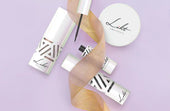
Liht Organics Black Friday: Enhance Your Beauty Routine with Vegan, Organic, and Natural Essentials!
As the holiday season approaches, there’s a sparkle in the air, and we at Liht Organics are thrilled to add a touch o...
-

Organic Makeup That Heals As It Conceals
Liht Organics Empowers Women With Only The Best For Their Beauty NeedsLiht Organics combines the best of both worlds:...
-
![[FEATURE] Liht Organics to debut at TFWA Asia Pacific show](//lihtorganics.com/cdn/shop/articles/1_1.png?v=1759328400&width=170)
[FEATURE] Liht Organics to debut at TFWA Asia Pacific show
‘Organic makeup that’s safe enough to eat’ — Liht Organics to debut at TFWA Asia Pacific show by Hannah Tan | 24 Apri...
-
![[FEATURE] The Singapore-based organic makeup brand is a first-time exhibitor at this year’s TFWA Asia Pacific Exhibition in Singapore in May 2025](//lihtorganics.com/cdn/shop/articles/2_1.png?v=1759328386&width=170)
[FEATURE] The Singapore-based organic makeup brand is a first-time exhibitor at this year’s TFWA Asia Pacific Exhibition in Singapore in May 2025
TFWA Asia Pacific preview: Liht Organics targets expansion in travel retail By DFNI Staff Writer The Singapore-bas...
-
![[FEATURE] Travel Retail Awards 2025 finalists - Best Make-up Product Color-Intense Liquid Lipstick – Liht Organics](//lihtorganics.com/cdn/shop/articles/4_e2f54f0f-fcd1-46e7-9990-fc9d29e35131.png?v=1759328382&width=170)
[FEATURE] Travel Retail Awards 2025 finalists - Best Make-up Product Color-Intense Liquid Lipstick – Liht Organics
Revealed: Travel Retail Awards 2025 finalists By Trbusiness Editor | Wednesday, 23 July 2025 15:21 TRBusiness is th...
-
![[FEATURE] Liht Organics targets expansion in travel retail](//lihtorganics.com/cdn/shop/articles/3_1.png?v=1759328346&width=170)
[FEATURE] Liht Organics targets expansion in travel retail
Organic makeup that’s safe enough to eat: Liht Organics targets expansion in travel retail By Laura Shirk Liht Organ...
-

[FEATURE] Gulf News: TikTok’s strawberry girl makeup trend: How to achieve that rosy glow inspired by Hailey Bieber
Berry, berry, strawberry, love strawberry, like BTS’s J-Hope, the band’s strawberry enthusiast once said. If only we ...
-

[FEATURE] Gulf Business Magazine : Liht-ing it up
Our founder, Nerissa Low was interviewed by Gulf Business, where she discussed her experience launching Liht, an orga...
-

[FEATURE] Daily Vanity: 11 local beauty brands owned by women – you’d be surprised how many of them started in their kitchens!
When we give a shout-out to homegrown beauty businesses, we aren’t just doing it for the sake of supporting local. Th...
-

[FEATURE] Entrepreneur ME : UAE-Based Liht Organics' Nerissa Low On Crafting An Organic Makeup Brand For The Skin-Conscious Consumer
As is the case with the origin stories of so many startups out there, Liht Organics came into being after its founder...
-
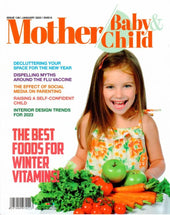
Mother, Baby & Child Editor’s Pick: Liht Organics Lights the Way
Excited to be the Mother, Baby & Child’s ‘Editors pick’ for their choice of Beauty brand.The article outlined the...
-
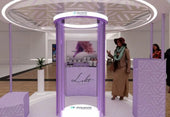
[FEATURE] EmiratesWoman - 8 Fabulous things to do in Dubai this weekend
by SARAH JOSEPHJANUARY 20, 2023Try the UAE’s first virtual reality makeup podium The popular VR-backed makeup exper...
-

Nerissa Low of Liht Organics On The Self-Care Routines & Practices Of Busy Entrepreneurs and Business Leaders
By Maria Angelova, CEO of Rebellious Intl.Date: 4 January, 2023Nerissa Low of Liht Organics On The Self-Care Routines...
-

Liht Organics: Meet the beauty brand that has caught the eye of the Royal Family of Bahrain
By Crystal Lee Digital Editor28 May 2021The world of clean beauty is, ironically, rather murky.That’s because the ter...
-

The latest luxury makeup and skincare drops, including serums, concealers, moisturisers and more
Allisa Noraini21 May, 2021It’s fine to splurge in the name of beauty. This new range of makeup and skincare drops are...
-

These SG Beauty Bosses Are Conquering The World Despite The Pandemic
First Singapore, then the US, China, Germany, Dubai, UK, South Korea, Malaysia, Hong Kong, Thailand, Australia… By...
-

Nerissa Low, Founder at Liht Organics
Written by Callum LaingPosted on December 26, 2020 10 min readNerissa Created Organic Makeup That Actually Improve...
-

Liht Organics – Makeup That Makes You
At Liht Organics, our mission is simple – to provide women (and men) with a safe experience when it comes to beauty s...
-

Why Should We Use Organic Makeup?
We cannot deny that cosmetics is one of our beauty essential item – it enhances our looks and conceals our flaws. Man...
-

Organic makeup and why your skin will love it: Liht Organics founder
By Jolene,July 27, 2020 |7 mins readOrganic make up in Singapore is a trend that is fast-catching on here as we becom...
-

[FEATURE] DC EDIT – Makeup & Confidence: Talking Self-love With Liht Organics’ Founder Nerissa Low
Makeup and confidence — the long, drawn-out fight that many of us have grappled with personally. I’m sure I’m not the...
-

[FEATURE] THE FEMALE CULTURE – I TRIED LIHT ORGANICS AND THIS IS HOW IT WENT
I’m a huge fan of makeup and I love testing out new products so I was pretty excited to get my hands on Liht Organics...
-

[FEATURE] SINGAPORE MOTHERHOOD – The Best Organic and Natural Skincare and Makeup for Pregnant and Breastfeeding Mums in Singapore
Pregnancy is a hormone-volatile period for women. One place where this makes itself seen and felt is on the skin. Som...
-

[FEATURE] AFTER CLINIC HOURS – 21 Back to Beauty Deals in Singapore (2020)
With spas and salons shuttered island wide for two months, I never thought I’d be this desperate for a good old’ Swed...
-

[FEATURE] KUL AL USRA MAGAZINE JUNE 2020
Choosing Pinks & Oranges this summer!Featured: Moisture Burst Lip Glaze in Pink Cupcake.
-
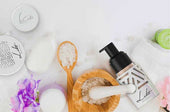
[FEATURE] Award-winning Organic Makeup Brand Liht Organics Gives Back to the Community & Environment During COVID-19
Singapore’s First Organic Makeup Brand with 100% Natural Makeup That Is Safe Enough to Eat Liht Organics promises org...
-

[FEATURE] COSMETICS DESIGN ASIA – COVID-19 ‘WAKE-UP CALL’: SINGAPORE’S LIHT ORGANICS SEES GLOBAL POTENTIAL AMID CLEAN BEAUTY CLAMOUR
Original article at: https://www.cosmeticsdesign-asia.com/Article/2020/06/26/Singapore-s-Liht-Organics-sees-globa...
-

[FEATURE] THE LIFESTYLE COLLECTIVE – BEAUTY SHOULD NEVER BE CRUEL
Date: June 24, 2020Author: Kristen Chen Liht (pronounced as light) Organics is a Singaporean organic makeup brand t...
-

[FEATURE] NÜYOU – 7 ONLINE PLATFORMS TO SHOP FOR CLEAN BEAUTY PRODUCTS
纯净美容(Clean Beauty)的美肤概念,再近几年来越来越受欢迎。随着消费者“爱自己”的美容意识逐步提升,对于用在脸上的所有物品、成分更为关注和讲究。以广义来讲,纯净美容主张使用“干净”成分和无毒配方,让肌肤的可能性损伤减到最小...
-

[FEATURE] COSMOPOLITAN MIDDLE EAST – 3 BENEFITS OF SWITCHING TO ORGANIC BEAUTY PRODUCTS THIS RAMADAN
By Cosmo – May 08, 2020Nerissa Low, founder of Liht Organics, shares the ultimate benefits of going organic this mont...
-

Nerissa Low of Liht Organics: “Seeing Light at the End of the Tunnel; 5 Reasons To Be Hopeful During this Corona Crisis”
Ely Weinschneider, Psy.D.May 8 · 9 min read …It shows us that everyone- whether we are rich or poor, regardless...
-

[FEATURE] AL MARA MAGAZINE APRIL 2020
-

[FEATURE] RetailME April 2020 – Liht Organics Stays Firm On Strengthening GCC Presence
-

[FEATURE] EMARAT AL YOUM NEWSPAPER – 27 MARCH 2020
English Translation:In spring and summer days, women love to have very light makeup in terms of color and texture, ...
-

[ARTICLE] WKND Magazine March 2020 – Know Your Organic Makeup
-

[FEATURE] AVIAMOST DUBAI – March/April 2020
English Translation:Lipstick with organic flowers. Thanks to the rich complex of natural ingredients, the lipstick...
-

[FEATURE] RUSSIAN EMIRATES (MAR/APR ISSUE)
Russian Emirates is a luxury lifestyle and fashion magazine covering information about the UAE, fashion, beauty, j...
-

[FEATURE] – KUL AL USRA MAGAZINE MARCH 2020
GET THE LOOK!
-

[FEATURE] IMAGES Retail ME – Liht Organics Announces GCC-Wide Expansion
Rupkatha Bhowmick Mar 10, 2020 The plan is to reach 75 Liht Organics retail touchpoints by June-July 2020 and touch...
-

[FEATURE] BABY & CHILD SPRING 2020 – NATURAL BEAUTIES
-

[FEATURE] AWQAT DUBAI – Liht Organics: The First Premium Organic Makeup Brand
ENGLISH TRANSLATION:Liht Organics – The First Premium Organic Makeup Brand Liht Organics, a premium organic beauty ...
-

[FEATURE] FRIDAY MAGAZINE – THE RETRO EYELINER LOOK
-

[FEATURE] MOTHER BABY & CHILD – VANITY ESSENTIALS – THE BEAUTY EDIT
-

[FEATURE] Masala! Magazine February/March 2020 Issue – Beauty Debut: Liht Organics
-

[Feature] – TimeOut Singapore – The Best Local Beauty and Skincare Brands In Singapore
For full article, click here.
-

[FEATURE] KUL AL USRA MAGAZINE – LIHT UP YOUR WORLD WITH LIHT ORGANICS
[ENGLISH TRANSLATION]Liht Up Your World With Liht OrganicsThe First Premium Organic Makeup Brand To Debut In The Mi...
-

[FEATURE] SINGAPORE TATLER – 9 Local Beauty Brands You Should Know Of
-

[FEATURE] nüyou August 2019 Issue – 15 Faces To Watch
-

[FEATURE] HONEYCOMBERS – Local Beauty Gurus: Singapore Beauty Brands You Need To Know About
-

[FEATURE] The Wellness Insider – Seeing The Liht With Founder Nerissa Low
-

[FEATURE] 联合早报 (LianHeZaoBao) – Women Entrepreneur Awards 2019 Coverage
-

[FEATURE] THE STRAITS TIMES Life – Clean beauty with a Singapore heart
-

Romantic Organic Makeup Looks for Valentine's Day: Tips, Tricks, and Product Picks
Valentine's Day is the perfect occasion to embrace the beauty of organic makeup. At Liht Organics, we believe in the ...
-
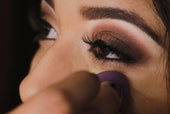
Enhance Your Eyes: A Guide to Eyeliner for Every Eye Shape with Liht Organics
Welcome to the Liht Organics blog, where we believe in celebrating the natural beauty of every eye shape. Today, we'r...
-
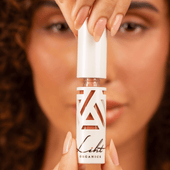
How to do makeup with only lipstick?
At Liht Organics, we believe in the power of clean beauty and the artistry of makeup. Makeup is more than just enhanc...
-

How to Clean Your Makeup Brushes in 6 Simple Steps
Cleaning your makeup brushes may seem like a tedious task, but it's an essential part of your beauty routine. Not onl...
-

Makeup Tips to Help You Look Your Most Flattering on Virtual Meetings!
After more than 2 years of work-from-home arrangement, and possibly hundreds of zoom calls and Google meet virtual me...
-
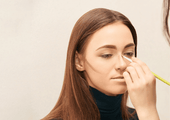
Learn How to Contour with This Simple Guide for Beginners
Want to take your makeup to the next level? Try contouring to achieve a more defined or sculpted look à la the Kardas...
-
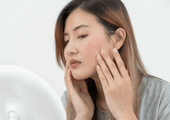
Essential and Easy Makeup Tips for Sensitive Skin
Living with sensitive skin conditions like eczema, psoriasis, and more is already not an easy feat. Throw in makeup t...
-
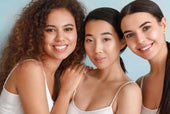
Raising Your Vibration: A Liht Organics Guide for Empowerment This International Women's Day
wp:paragraph As International Women's Day (IWD) approaches, it serves as a powerful reminder of the journey towards s...
-

The Beauty of Going Bare: Why Sleeping with Makeup is a No-No
Have you ever had one of those nights where you're too tired to clean off your makeup? You might believe, "Skipping...
-

Breast Cancer Awareness: Empower Your Beauty with Liht Organics Makeup
During October, we observe Breast Cancer Awareness Month as a way to unite and bring attention to breast cancer whil...
-

The Hidden Dangers of Carmine in Makeup Colorants: Embracing Healthier and Vegan Options
Makeup has become an integral part of our daily routines, allowing us to express our unique beauty. However, as we pr...
-

How can I ensure that my makeup products are organic and won't harm my skin?
When it comes to makeup, it’s important to be mindful of what you’re putting on your skin. With so many products on t...
-
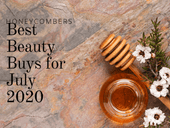
[FEATURE] HONEYCOMBERS – BEST BEAUTY BUYS IN JULY
by Nicole NithiyahWhat’s hot in our beauty hit list: Honest thoughts and top beauty stories we’re swooning over. As w...
-

Liht Organics Introduces Exclusive Gift Sets: Enhance Your Beauty This Festive Season!
As the holiday season approaches and the year draws to a close, Liht Organics is thrilled to present two enchanting g...
-

Get Spooktacular with the Best Halloween Makeup Ideas using Liht Organics' All-Natural, Vegan, and Cruelty-Free Cosmetics!
With Halloween just around the corner, it’s time to let your creativity shine and transform yourself into a spooky,...
-

Celebrating World Animal Day with Liht Organics: Embracing Natural Cruelty-Free Makeup
wp:paragraph As we observe World Animal Day, the team at Liht Organics takes great pride in honoring our pledge to...
-
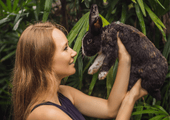
Reasons Why You Should Choose Cruelty-Free Cosmetics Instead!
With increasing exposés unveiling the ugly truth behind animal testing that goes on in the beauty industry, it is lit...
-

Celebrate Singles Day with Makeup That Empowers – 22% Off at LIHT Organics!
This Singles Day, treat yourself to beauty that goes beyond skin-deep. At LIHT Organics, we believe makeup is about s...
-

Preparing for the Cozy Beauty of Autumn: A Preview of Your Fall Look
As we bid farewell to the warm, sun-kissed days of summer, it’s never too early to start dreaming about the enchantin...

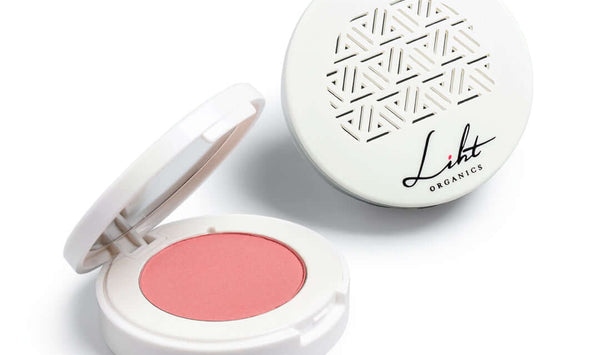
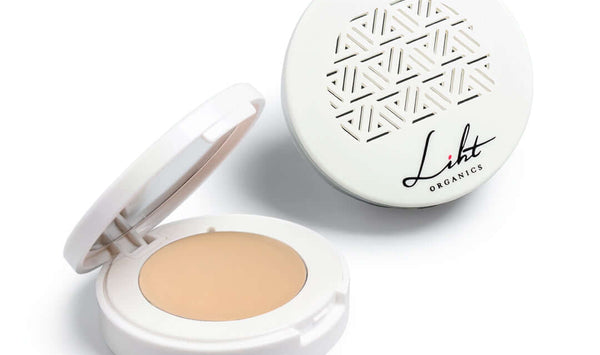
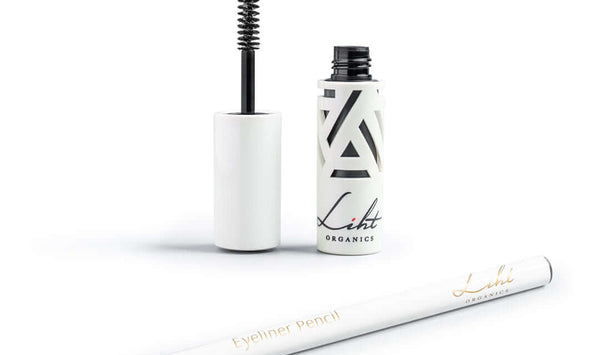
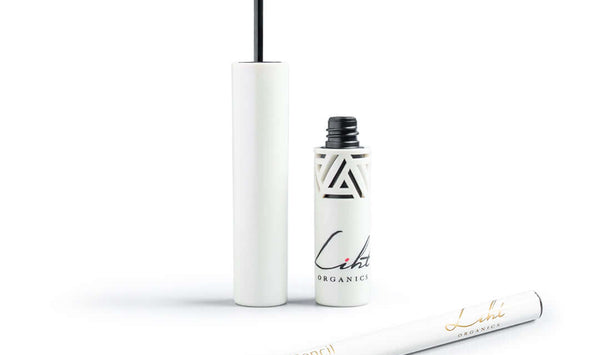
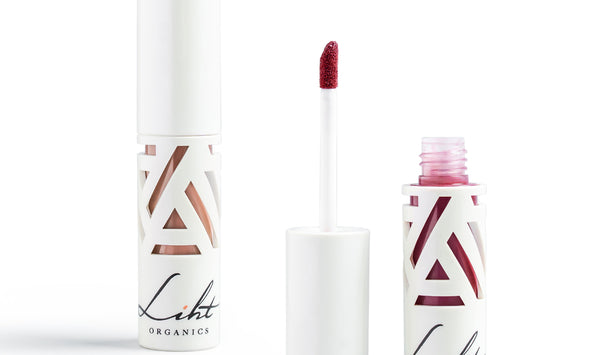
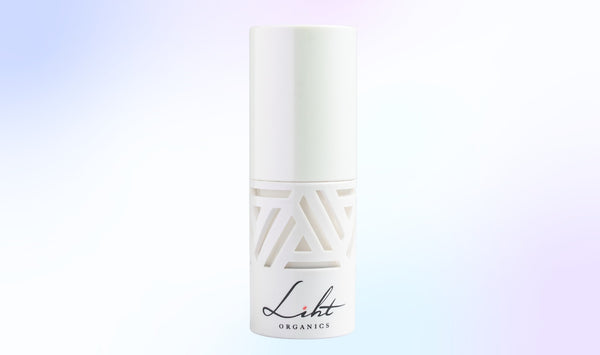

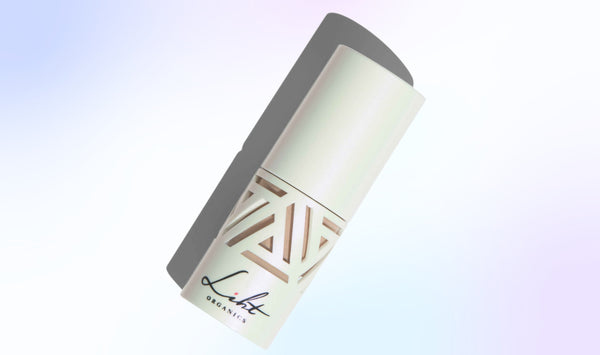
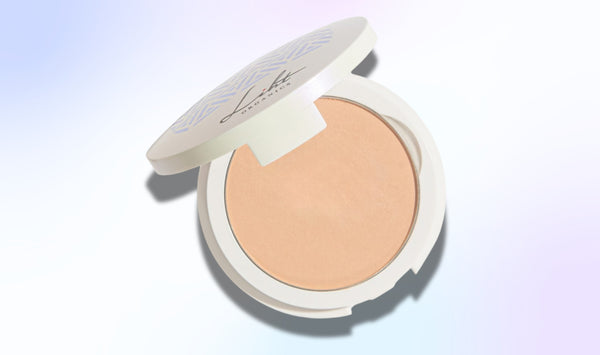
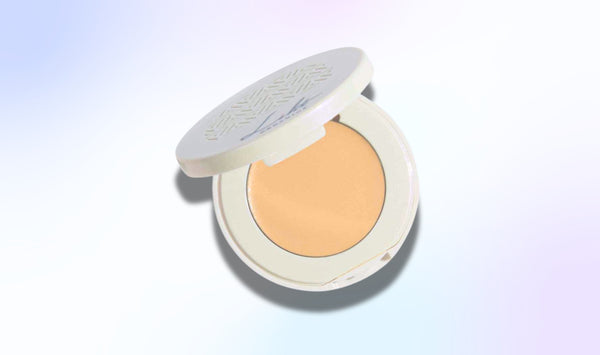
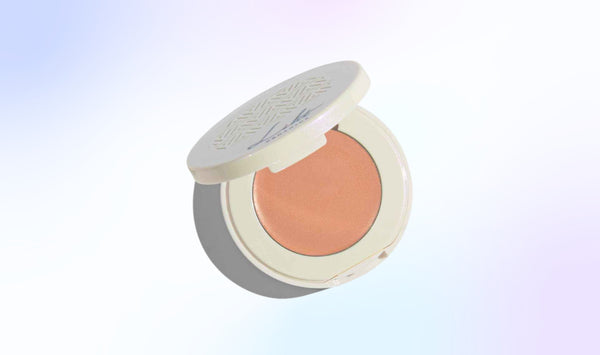
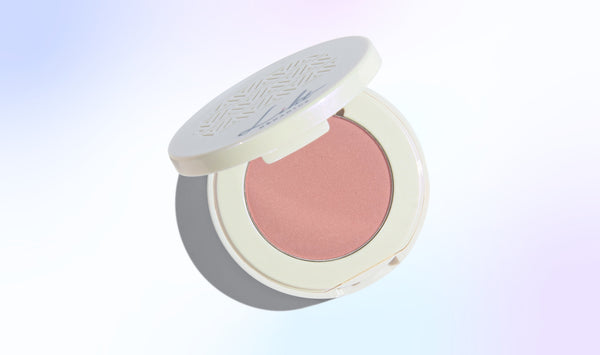
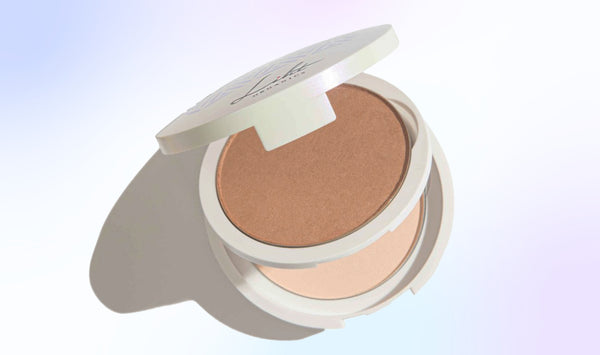
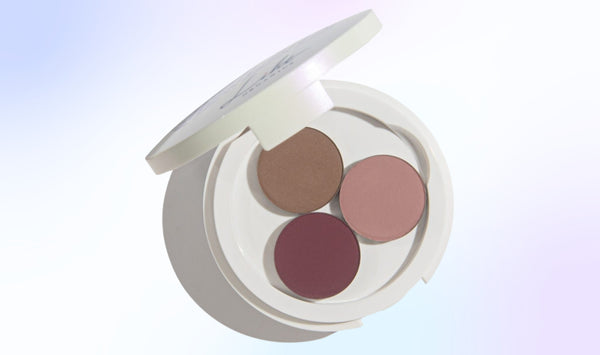
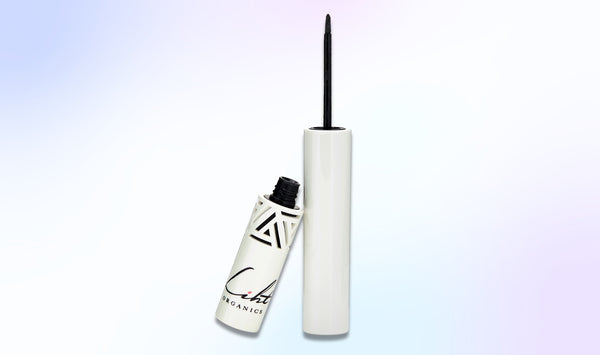
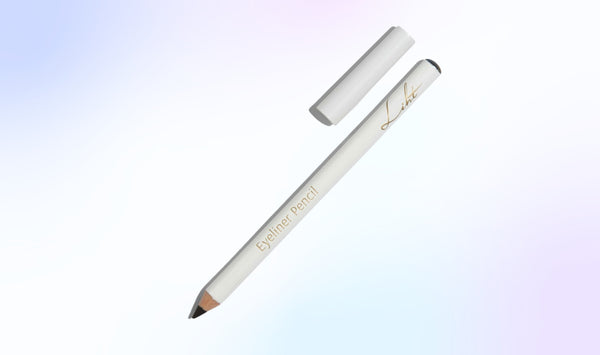
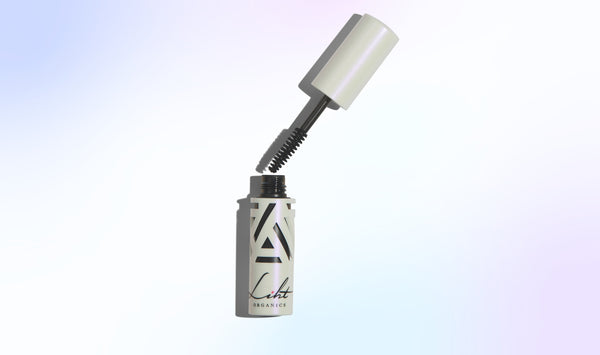
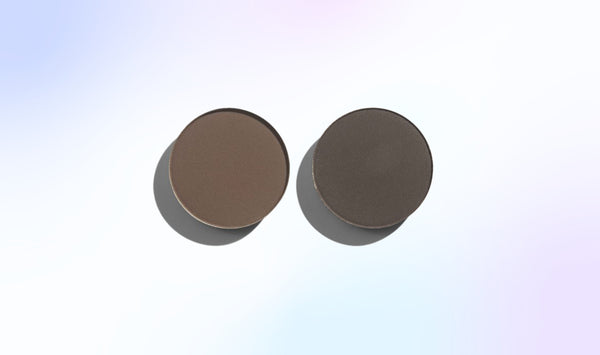
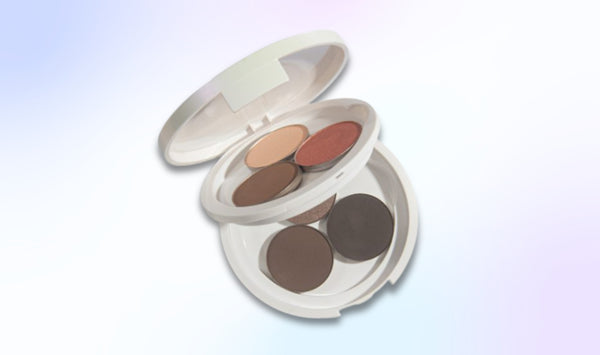
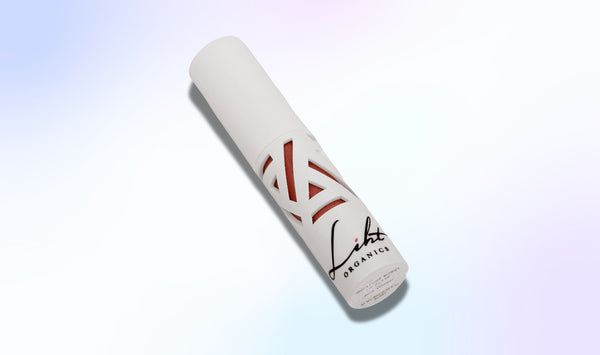
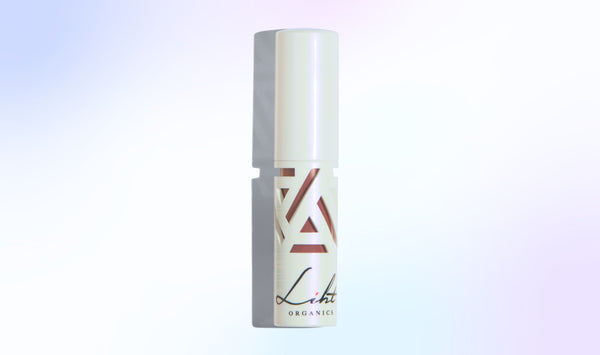
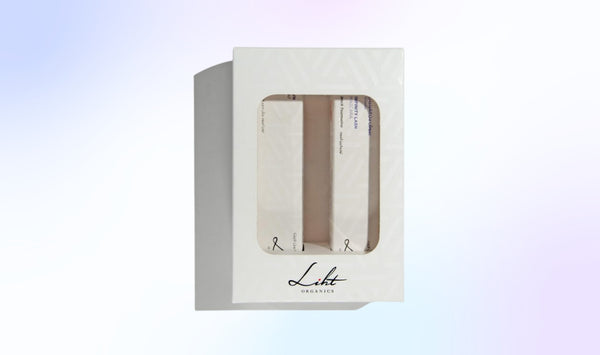
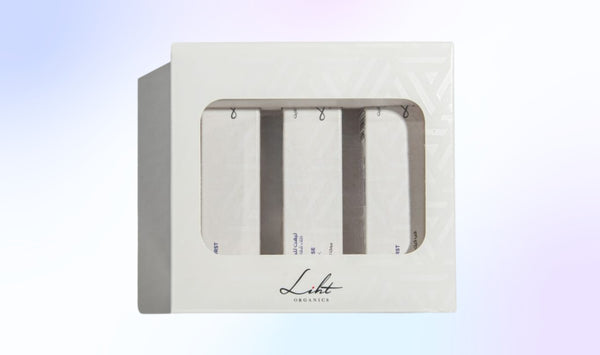


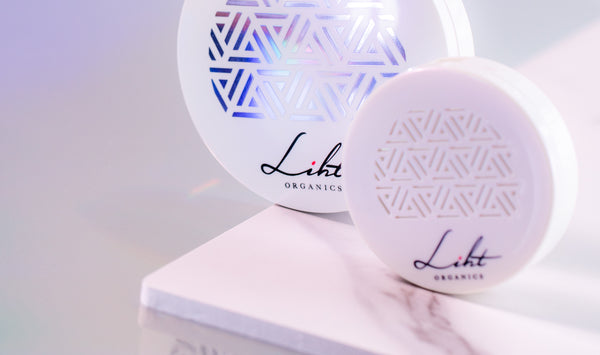
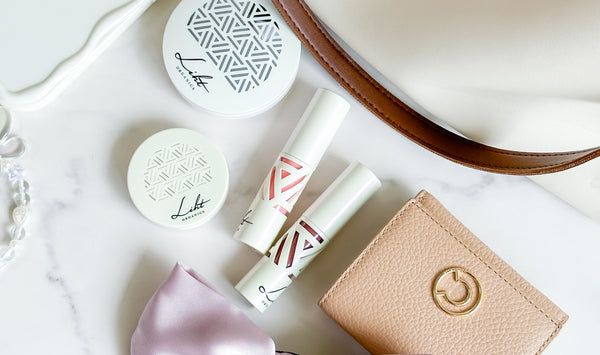
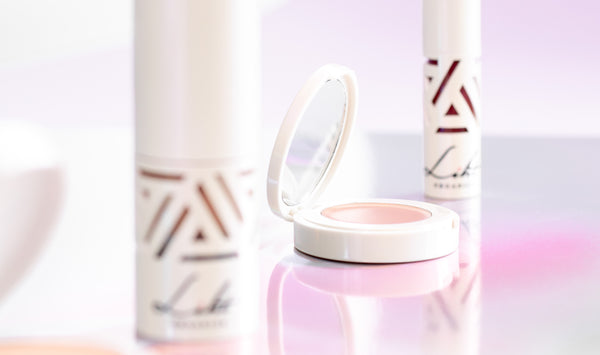




![[FEATURE] Liht Organics to debut at TFWA Asia Pacific show](http://lihtorganics.com/cdn/shop/articles/1_1.png?v=1759328400&width=170)
![[FEATURE] The Singapore-based organic makeup brand is a first-time exhibitor at this year’s TFWA Asia Pacific Exhibition in Singapore in May 2025](http://lihtorganics.com/cdn/shop/articles/2_1.png?v=1759328386&width=170)
![[FEATURE] Travel Retail Awards 2025 finalists - Best Make-up Product Color-Intense Liquid Lipstick – Liht Organics](http://lihtorganics.com/cdn/shop/articles/4_e2f54f0f-fcd1-46e7-9990-fc9d29e35131.png?v=1759328382&width=170)
![[FEATURE] Liht Organics targets expansion in travel retail](http://lihtorganics.com/cdn/shop/articles/3_1.png?v=1759328346&width=170)
































































